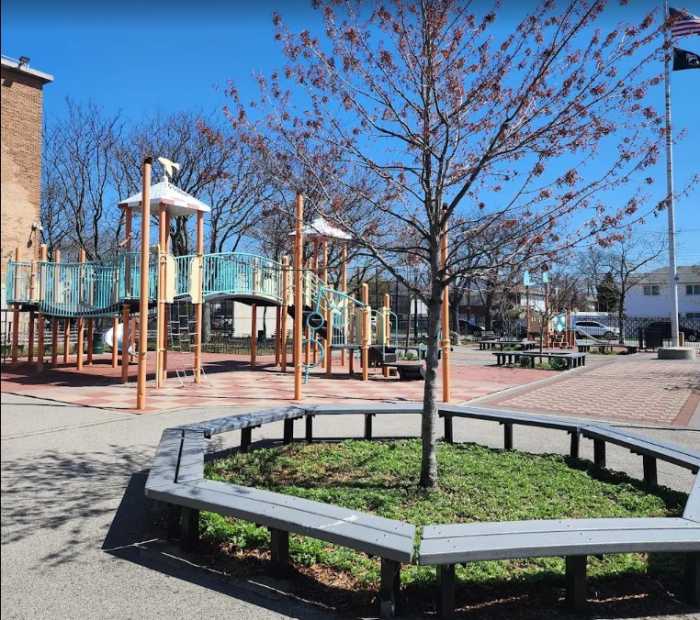By Sophia Chang and James DeWeese
After his arrest, Mohammed Junaid Babar pleaded guilty to providing support to terrorist groups during a sealed court proceeding, The New York Times reported Friday. A conviction can carry a prison term of 30 years to life, according to a terrorism law passed after the 1996 Oklahoma City bombing.
Officials at the local, state and federal levels familiar with the proceeding refused to comment and news reports about Babar's plea deal could not be independently confirmed.
In the months preceding the start of the U.S. invasion of Afghanistan in late 2001, Babar appeared in Pakistan in an interview with a British television network doing a story about British Muslims, who motivated by faith, went to fight against U.S. and British forces.
“We knew him as Junaid,” said ITN News Five editor Gary Rogers. “He was among a number of Muslims who said they would be fighting for the Muslims.”
During the interview, Babar said his own mother had escaped from the collapsing World Trade Centers in the Sept. 11, 2001 terrorist attacks, but that fact did not weaken his loyalty to the Taliban cause.
Before surfacing in Pakistan, Babar studied at the Queens chapter of an international Muslim organization that bills itself as a collective body working toward worldwide domination by Islam, according to a press release issued last Thursday by the group.
Al-Muhajiroun North America said in its release that Babar studied with the group but was not an official member. He eventually left voluntarily and all contact was severed, the group said in the release signed by Abu Yousuf, who has been identified in news reports as Al-Muhajiroun's Queens chapter organizer.
Al-Muhajiroun's statement also denied media reports of any connection to the alleged terror plot in which followers of radical British cleric Sheik Abu Hamza reportedly planned to blow up London pubs, restaurants and train stations in March.
British police said they arrested eight men in connection with the alleged London plot and seized half a ton of nitrate fertilizer, which can be used to make bombs.
Babar allegedly was supporting the terror plot, according to The Times, although the specific charges against him were sealed.
During the Pakistan interview with ITN News Five, Babar told an interviewer he felt compelled to fight Americans out of loyalty to his Muslim brethren.
“I can't stand by and live in America while my Muslims are being bombed in Afghanistan,” said Babar as he waited to be smuggled from Pakistan into the neighboring country under Taliban rule. “You know, I say my loyalty is toward them. Now it's time to prove my loyalty to the Muslims of Afghanistan.”
During the interview, which ITN News Five first broadcast in Britain and then was picked up by CNN International, Babar said he would not return to the United States.
Babar was interviewed by ITN on three separate occasions in Islamabad and Lahore. His inflammatory remarks in the interview reportedly drew the attention of American authorities, who began investigating him, the Associated Press reported.
Babar's specific goal was to fight for the Taliban, a man who met him
in Pakistan told the TimesLedger and who spoke on condition of anonymity. “He never expressed a desire to bring his fight back to the U.S. or U.K.”
“He was certainly an idealistic young man,” he said. “Exceedingly polite, well presentable, well turned out, I suppose distinctive even compared to other would-be Taliban recruits. He was even more resolute and adamant about his goals.”
Rogers said he knew of no evidence that Babar ever entered Afghanistan. The New York Times quoted federal officials as saying Babar returned to the United States March 6, where he reportedly signed up for taxi classes with a company in Long Island City.
The one-time computer programmer was arrested at 166th Street and Hillside Avenue in Briarwood in early April, The Times reported.
Corrections Officer Tom Butler at the Manhattan Correctional Center said Babar had been in jail since April 10. No charges were listed in Babar's file and no FBI number had been assigned to his case, Butler said.
It was unclear if Babar had any legal counsel, although he had been assigned a prison case manager and counselor to assist him in his acclimation to jail, Butler said.
Officials at the Federal Bureau of Investigation, the U.S. attorney's offices in Manhattan and Brooklyn and the city Police Department refused to comment.
The Department of Homeland Security referred all questions specifically related to the Babar case to the U.S. Justice Department. Justice Department spokesman Michael Kulstad declined to comment after consulting with his superiors.
Reach reporter Sophia Chang at news@timesledger.com , or call 718-229-0300, Ext. 146.




































